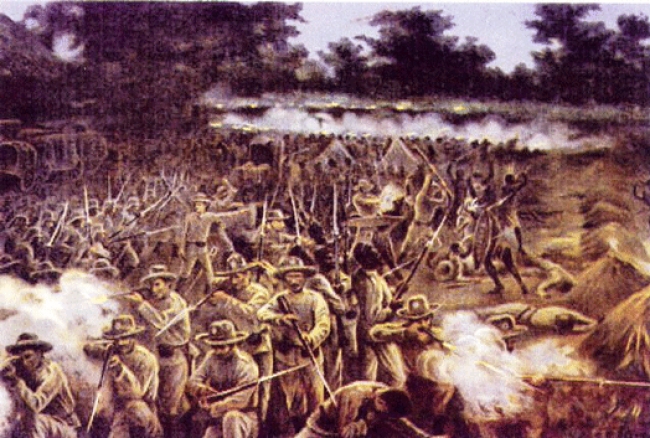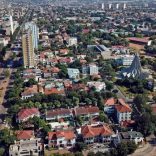Mozambican photographer Mário Macilau featured at AKAA 2025 Art Fair in Paris
More than 5,000 expected today at Gwaza Muthini celebrations in Marracuene

Rádio Moçambique
More than 5,000 people are expected today in the village of Marracuene, Maputo province, for the 123-year ‘Gwaza Muthini’ celebrations, and district authorities have already set up work committees to ensure calm and orderly proceedings.
This year’s celebration will culminate with a tribute to renowned Marracuene musician Dilon Djindji who this year celebrates his ninetieth birthday, and seventy years as a working musician.
The Battle of Marracuene (Gwaza Muthini) remembers the anti-colonial resistance fought by warriors commanded by Nwamatibyana, Zihlahla, Mahazule, Mulungu and Mavzaya against the Portuguese colonial army in 1895.
The Portuguese force, comprising 37 officers and 800 soldiers, was commanded by Major José Ribeiro Júnior, with Major Alfredo Augusto Caldas Xavier second in command, and was advancing on Marracuene, on the right bank of the Incomati river. Due to Major Júnior’s illness, the force was effectively commanded by Major Caldas Xavier, who was almost exclusively responsible for the conduct of operations.
Approaching Marracuene, the Portuguese forces formed a square and prepared for battle. The confrontation takes place in the dawn of 2 of February of 1895. The Portuguese force, used artillery and machine guns to repel the assaults of the Ronga forces, which twice broke the square, with enormous bravery exhibited on both sides.
The central commemorations take place in Marracuene, where the traditional ‘kuphahla’ (evocation of the spirits of the ancestors) is carried out, followed by a deposition of flowers next to the monument to the warriors and the singing of the national anthem and speeches.
The Battle of Marracuene was one of a series that took place within the scope of resistance to Portuguese occupation. From the Portuguese point of view, these battles were seen as campaigns of conquest and pacification, and the celebration of this date is not entirely of Mozambican origin.
In 1896, one year after the Battle of Marracuene, the Portuguese colonial authorities celebrated ‘Gwaza Muthini’, but in memory of the Portuguese soldiers killed in the battle.
Mozambican celebrations began only in 1974, with two further celebrations in 1975 and 1976.
The celebration was reactivated by Mozambican businessman António Yok Chan in 1994, and has been held on a regular basis ever since.
This date has been associated in recent years with the ‘Marrabenta Festival’ and other cultural activities that will this year culminate in a ‘Gwaza Muthini Marrabenta Festival’.
Another attraction of this event is the traditional ‘ukanyi’ beverage, which is prepared ahead of the festivities in sufficient quantities for everyone.












Leave a Reply
Be the First to Comment!
You must be logged in to post a comment.
You must be logged in to post a comment.